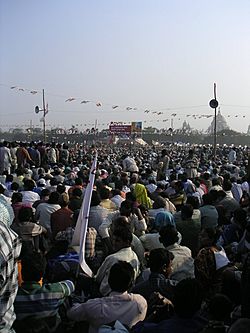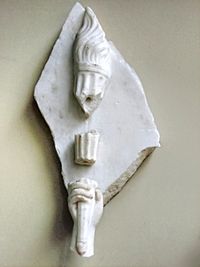Civil liberties facts for kids
Civil liberties or personal freedoms are personal guarantees and freedoms that the government cannot abridge, either by law or by judicial interpretation, without due process. Though the scope of the term differs between countries, civil liberties may include the freedom from torture, freedom from forced disappearance, freedom of conscience, freedom of press, freedom of religion, freedom of expression, freedom of assembly, the right to security and liberty, freedom of speech, the right to privacy, the right to equal treatment under the law and due process, the right to a fair trial, and the right to life. Other civil liberties include the right to own property, the right to defend oneself, and the right to bodily integrity.
Overview
Many contemporary states have a constitution, a bill of rights, or similar constitutional documents that enumerate and seek to guarantee civil liberties. The existence of some claimed civil liberties is a matter of dispute, as are the extent of most civil rights.
The formal concept of civil liberties is often dated back to Magna Carta, an English legal charter agreed in 1215 which in turn was based on pre-existing documents, namely the Charter of Liberties.
See also
 In Spanish: Libertades civiles para niños
In Spanish: Libertades civiles para niños



